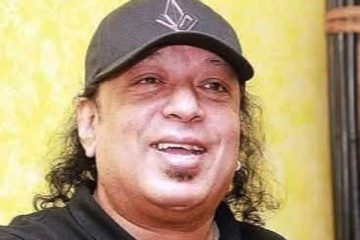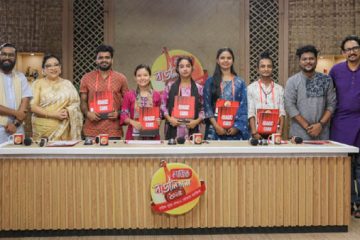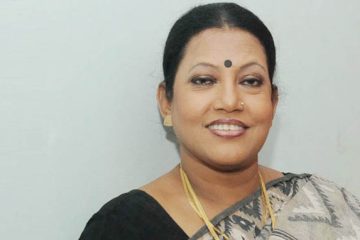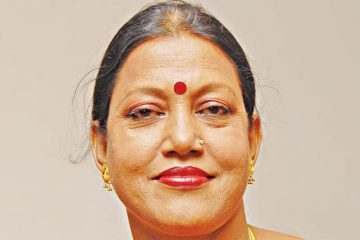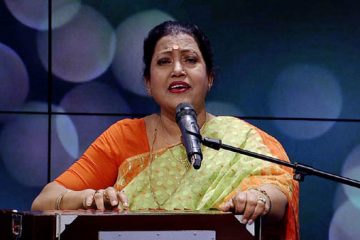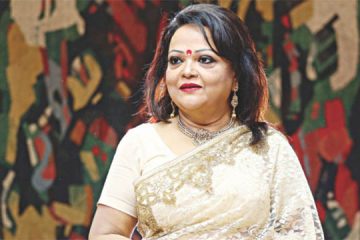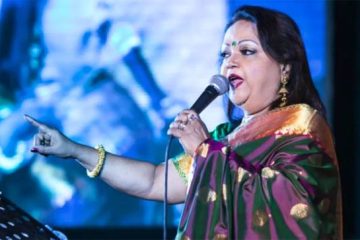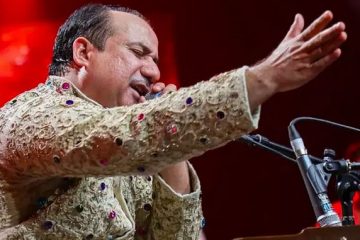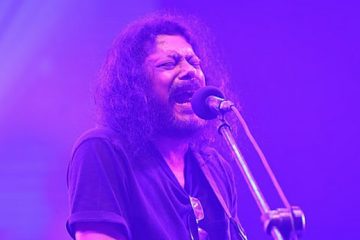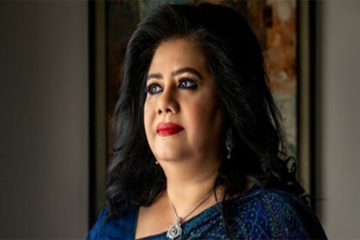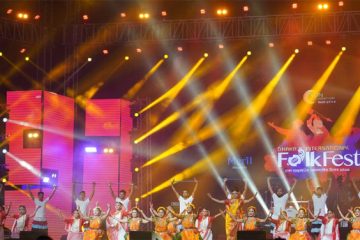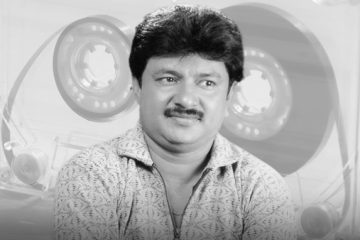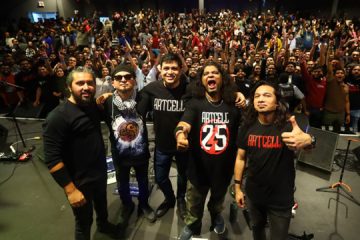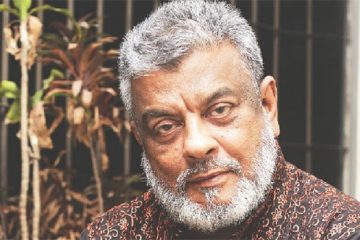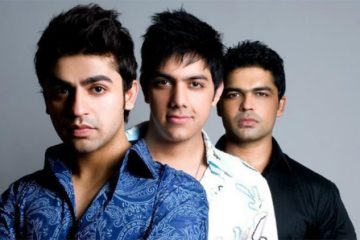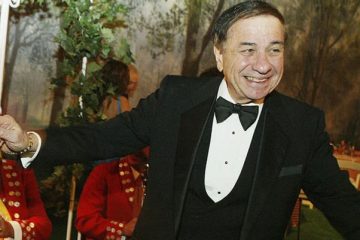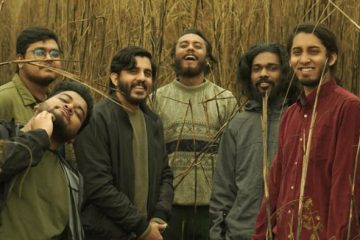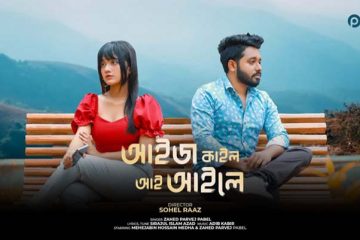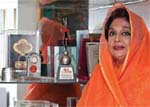 Celebrated singer Shahnaz Rahmatullah announced that she has wrapped up her music career of over five decades, during an exclusive interview with New Age. These days the singer, a kindred spirit to millions of her devoted admirers, does not sing anymore.
Celebrated singer Shahnaz Rahmatullah announced that she has wrapped up her music career of over five decades, during an exclusive interview with New Age. These days the singer, a kindred spirit to millions of her devoted admirers, does not sing anymore.
‘After observing Umrah two years back, I’m more into religion these days. And I’ll never sing,’ Shahnaz Rahmatullah, also known as Shahnaz Begum, told New Age.
In her kaleidoscopic journey of over 50 years in music, Shahnaz Rahmatullah has recorded around 500 songs in radio and TV. But the choosy artiste released only three solo albums and three mixed albums.
During her monumentally influential years as a singer in 1960s and 1970s, Shahnaz tremendously impressed the new generation through her superfluous songs. It is Shahnaz’s unique singing voice that resonates with the sheer power of some evergreen songs such as Phuler kane bhromor eshey, Je chhilo drishtir shimanay, Sagorer shoikote, and Sagorer teer theke.
The powerful singer could make her listeners cry through sentimental numbers such as Ami to amar golpo bolechhi, Tomar agune porano and Shudhu ki amar bhul. And when it comes to patriotic songs she is almost unparalleled.
Joy bangla banglar joy, Amaro deshero matiro gondhey, Ek nodi rokto periye, Ekbar jete de na, Ektara tui desher katha, Prothom bangladesh amar shesh bangladesh were always popular and even used in political movements of both Awami League and BNP. And many local listeners don’t even know that her Urdu patriotic songs such as Sohni dharti allah rakhe is still very popular in Pakistan.
As recognition to her career Shahnaz Rahmatullah received many awards including the Ekushey Padak in 1992. Pakistan Television gave her lifetime achievement award during the 45 years celebration of the TV channel in 2007.
Born to M Fazlul Haque and Asia Haque in 1953 in Dhaka, Shahnaz Begum began learning music at a very tender age. While an artiste of Khelaghar, she got her first national recognition becoming champion in the children’s music competition organised by the then Radio Pakistan in 1964.
Her brother Anwar Parvez, a renowned music composer, gave her break in the commercial world of radio at her teenage through the song Ami prithibire. Within a short span of time, Shahnaz Begum became very popular in both parts of Pakistan by presenting some coruscating melodies.
She lent voice simultaneously in Bangla and Urdu movies and released her first LP on geets and ghazals, composed by Sohail Rana, from the then West Pakistan, which is an all time favorite. Additionally, she used to enthrall audiences presenting ghazals in live concerts.
But, this popularity appeared as a great trouble in her career. She was banned after Independence for singing two patriotic songs in Urdu in the then West Pakistan titled Jeeve jeeve pakistan and Sohni dharti allah rakhe in 1971.
‘I don’t understand the reason behind imposing restrictions on me. Better ask them, who were behind it. To me I didn’t do anything offensive rather I was misunderstood. People don’t know the struggle I had to undertake in Pakistan just to save the life of my brother Zafar Iqbal, who was then imprisoned on charge of insurgency in 1971,’ Shahnaz Rahmatullah told New Age.
‘Knowing Zafar Iqbal was arrested in Pakistan jail, who went there after initiating some guerrilla operations in Dhaka, I along with my mother and sisters left Dhaka for Karachi to start her “war” to save his life.’
According to Shahnaz Rahmatullah, being a Bengali and also a sister of a convict she was almost in a state of ‘house arrest’. ‘I had to continue my music career there for bread and butter and also to collect money to release my brother. They capitalised on my popularity and forced me to render songs such as Jeevay jeevay pakistan and Sohni dharti Allah. What else could I do then?’
She informs that she came back Dhaka in late 1971 as a free citizen with her family members and married Major (rtd) ABM Rhmatullah in 1972.
‘I don’t even bother when people allege me as a pro BNP artiste for lending voice in patriotic songs such as Prothom Bangladesh. But what people never mention is that I lent voice, along with Abdul Jabbar, in Joy bangla banglar joy, composed by my brother Anwar Parvez, which Awami League used in its campaign during the national elections in 1970. This song was also the signature tune of the then Swadhin Bangla Betar Kendra. The radio station also used to air patriotic songs such as Sona sona sona sung by me. People also don’t know that martyr intellectual Altaf Mahmud, one of my mentors, took me to present Amar sonar bangla at a cultural programme held at late 1960s at the Curzon Hall of Dhaka University.’
Demanding artistes should be above and beyond politics Shahnaz Rahmatullad said, ‘I’m a singer not a politician. And those who smells politics, let them explain why they do it.’
She is grateful to Khan Ataur Rahman, who helped her overcome the ban imposed on her. ‘Khan Ata took me to FDC again to record the title song of his next movie Banglar Mukh in 1973. Subsequently, I rendered one of the most popular patriotic songs of my career Ek nadi rakto periye in 1974 in radio. But, BTV continued the ban,’ she said.
In fact, rare talent Khan Ataur Rahman had always been supportive like other great music directors in 1960s, she said. ‘That was the most vibrant era of the music industry of the country. All the talented composers like Samar Das, Khan Ataur Rahman, Abdul Ahad, Anwar Parvez and Rabin Ghosh used to create some wonderful melodies. Those talented composers were like ideal teachers. Can you show me any single lyricists like Abu Hena Mostafa Kamal, Sikandar Abu Zafar and Dr M ManIruzzaman these days?’
‘A good song is the combination of tasteful lyrics, good music and the voice that has practiced the song adequately. Music is a matter of devotion and practice. There is no alternative to regular practice and dedication if anyone wishes to be a good artist.’
Shahnaz Rahmatullah wishes that her songs remain alive without being distorted. ‘I still feel proud watching my popularity amongst millions of listeners at home and abroad,’ she said.
She also suggests young generation to concentrate more on learning music with dedication instead of going after commercial benefit.
-With New Age input

